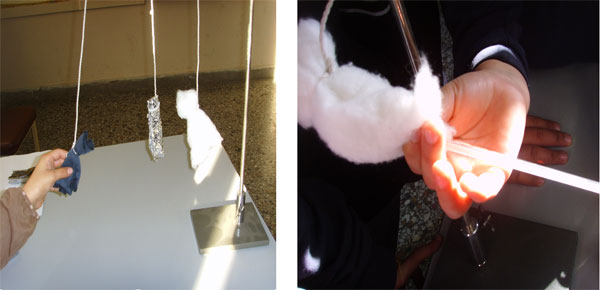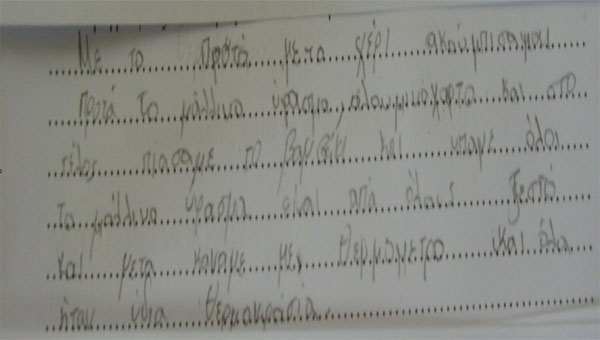The classes to strengthen pupils’ Greek language skills pertaining to natural sciences are supported by the book entitled Experiments with Heat, Light and Electrical Circuits – Instructions for Primary School Teachers and by some experiment kits that consist of selected materials.
The materials are for: (a) 8 experiments from the field of heat, (b) 7 experiments and the construction of a device (darkroom), that pertain the phenomena of light, and (c) 5 experiments and the construction of a device (electroscope), that pertain to electrical phenomena.
According to contemporary approaches to the teaching of natural sciences, experiments are considered to help children understand the concepts of Physics, only if these experiments are conducted within the framework of a dialogue with them. For this reason, the proposed experiments are also connected to a series of activities that are described in the instructions for the teachers.

The pupils find out that the estimate through our senses of an object’s temperature differs from that object’s actual temperature, which we can objectively measure with a thermometer.
The experiments do not “speak” for themselves about the phenomena they depict. It is we who talk about them. It is for this reason that it is recommended that the children should talk and write while handling the materials and conducting the experiments, even when they express views that are different from the scientific ones. The description and the justification-argumentation that is developed by the children, within the framework of conducting the experiments and handling the materials (handling and involvement as a source of motivation), aims not only at their acquisition of scientific knowledge, but also at the strengthening of their Greek language skills.

Description by children of the experiment about the temperature of different materials.
Similar classes for natural sciences are conducted at the KESPEMs, as well.





